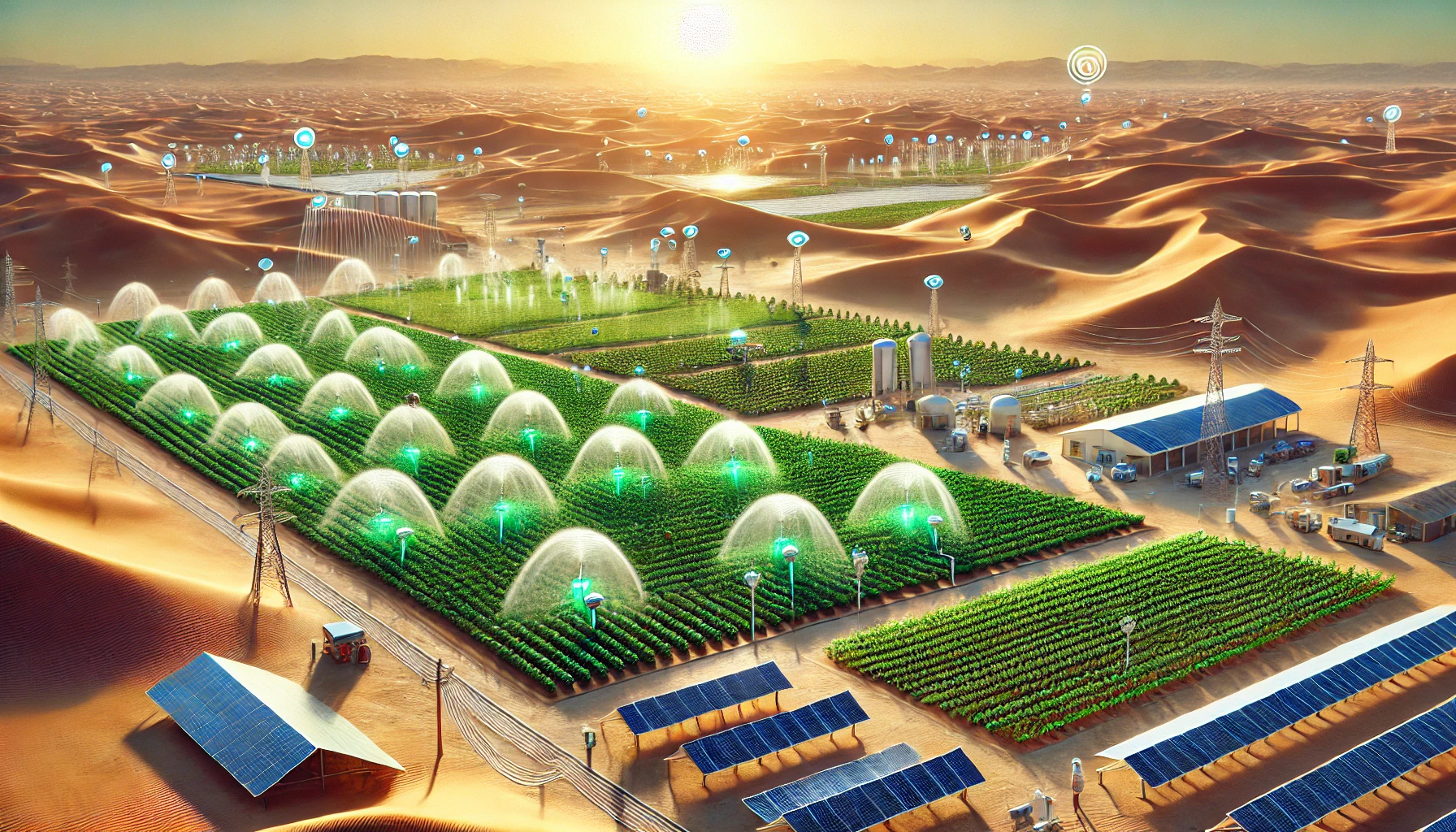Sustainable Agriculture in Saudi Arabia: IoT Solutions for Efficient Water Management
Researchers from Majmaah University propose an IoT-based system to optimize water usage in Saudi Arabia’s agriculture, demonstrating a 30% reduction in water consumption and 25% increase in crop yields. The system supports Vision 2030 goals for sustainable development despite challenges like infrastructure costs.

A study conducted by researchers from the Department of Computer Engineering at Majmaah University, Saudi Arabia, explores the transformative role of the Internet of Things (IoT) in agricultural water management in Saudi Arabia. The study addresses the country's pressing issue of water scarcity and inefficient irrigation practices, focusing on how IoT-based technologies can enhance water management in agriculture. This work employs the Technique for Order of Preference by Similarity to the Ideal Solution (TOPSIS) method to analyze various IoT-enabled systems, ultimately presenting a potential solution to the challenges faced by the agriculture sector, which accounts for over 90% of the country's total water consumption.
The Water Challenge in Saudi Agriculture
Saudi Arabia's agricultural sector, despite operating in an arid climate, plays a significant role in the country’s economy. However, the inefficient use of water resources through outdated irrigation methods has led to several negative outcomes, including waterlogging, salinization, soil degradation, and reduced crop yields. The research underscores that with water being a scarce commodity in the country, efficient water management is essential for the sustainability of agriculture. The paper explores how traditional methods of water use are increasingly proving to be ineffective and emphasizes the need for real-time data to make informed decisions regarding water usage.
IoT-Based Solutions to Transform Agriculture
To address these inefficiencies, the study proposes an IoT-based Agricultural Water Management System (IoT-AWMS), which integrates sensors, real-time data analytics, and machine learning algorithms to optimize water usage. This system monitors soil moisture levels, weather patterns, and crop watering needs, allowing farmers to adjust water use accordingly and avoid over or under-irrigation. The research findings suggest that the IoT-AWMS can significantly improve water use efficiency, reduce waste, and boost crop yields in Saudi Arabia’s agricultural sector. Simulations conducted using MATLAB software and FAOSTAT datasets demonstrated a 30% reduction in water usage and a 25% increase in crop yields when compared to conventional irrigation systems.
TOPSIS: Evaluating the Best System
The TOPSIS method was used to evaluate the performance of different IoT-based systems, measuring factors such as water efficiency, cost-effectiveness, and crop yields. The results clearly indicated that the IoT-based system outperformed traditional systems in all these areas, making it a viable solution for Saudi Arabia’s agricultural challenges. The study highlights how IoT devices like soil moisture sensors, temperature monitors, and weather condition trackers work in real-time to inform farmers of the precise water needs of their crops. This not only helps in optimizing water usage but also ensures that the crops receive the exact amount of water they need, thereby preventing wastage and promoting better crop growth.
Challenges and the Road Ahead
The paper also discusses the system’s scalability and the potential challenges associated with its implementation. One of the primary hurdles identified is the cost of deploying IoT infrastructure, which could be prohibitively expensive for small-scale farmers. Furthermore, the system relies heavily on stable internet connectivity, which may be difficult to ensure in rural and remote farming areas. These challenges, according to the researchers, must be addressed for the widespread adoption of IoT-based water management systems. Additionally, the study emphasizes the need for further research into integrating other advanced technologies like artificial intelligence (AI) and blockchain to further enhance the efficiency of IoT-based water management. AI could help in making predictive decisions about future water needs based on weather patterns and crop growth data, while blockchain technology could ensure secure and transparent data sharing among various stakeholders.
A Path to Sustainable Agriculture
Despite these challenges, the study firmly positions IoT-based water management systems as a key solution for Saudi Arabia's agricultural sector, especially in the context of the country's Vision 2030 objectives. Vision 2030 aims to promote sustainable development, and the adoption of IoT technologies in agriculture could significantly contribute to achieving these goals by reducing water consumption and improving food security. The study concludes that integrating IoT in agricultural water management not only addresses the current water scarcity issues but also provides a long-term solution that can contribute to the sustainability of the agricultural sector in Saudi Arabia. While the initial costs and infrastructure challenges are significant, the long-term benefits of water conservation, improved crop yields, and enhanced efficiency make the adoption of such systems a worthwhile investment.
- FIRST PUBLISHED IN:
- Devdiscourse










